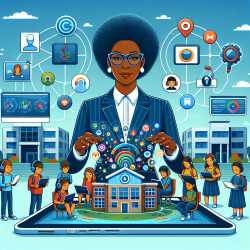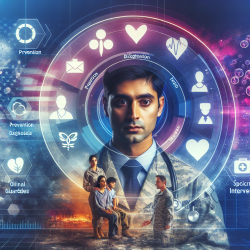Introduction
In the ever-evolving landscape of healthcare, practitioners are continuously seeking ways to improve their skills and provide culturally competent care. The research article "Operation Remote Immunity: exploring the impact of a service-learning elective in remote Indigenous communities" offers valuable insights into how service-learning can enhance medical education and promote social accountability. This blog post will explore the outcomes of this research and how practitioners can apply these findings to improve their practice.
Understanding the Research
The study focused on the Northern Ontario School of Medicine University's (NOSMU) involvement in Operation Remote Immunity (ORI), which aimed to deliver COVID-19 vaccines to remote Indigenous communities in Ontario. This initiative was not only a public health effort but also a service-learning elective for medical learners, providing them with firsthand experience in culturally sensitive care.
Key Findings
- Confronting Realities: Medical learners faced the stark realities of healthcare disparities in Indigenous communities, such as high food prices and limited access to clean water.
- Service-Learning as a Path to Social Accountability: The experience emphasized the importance of cultural sensitivity, social accountability, and the practical application of CanMEDs competencies like communication and collaboration.
Implementing the Outcomes
For practitioners, the research underscores the importance of integrating service-learning into medical education. Here are some actionable steps:
- Engage in Service-Learning: Seek opportunities to participate in service-learning projects that expose you to diverse cultural contexts and social determinants of health.
- Promote Cultural Sensitivity: Incorporate cultural sensitivity training into your practice to better serve diverse populations.
- Reflect on Social Accountability: Regularly reflect on your practice's social impact and seek ways to contribute positively to underserved communities.
Encouraging Further Research
The study highlights the need for further research into the long-term impacts of service-learning on medical practice and community health outcomes. Practitioners are encouraged to engage in or support research initiatives that explore these areas.
Conclusion
Operation Remote Immunity provides a compelling case for the integration of service-learning in medical education. By adopting the outcomes of this research, practitioners can enhance their skills, promote social accountability, and contribute to improved health outcomes for Indigenous and other underserved communities.
To read the original research paper, please follow this link: Operation Remote Immunity: exploring the impact of a service-learning elective in remote Indigenous communities.










